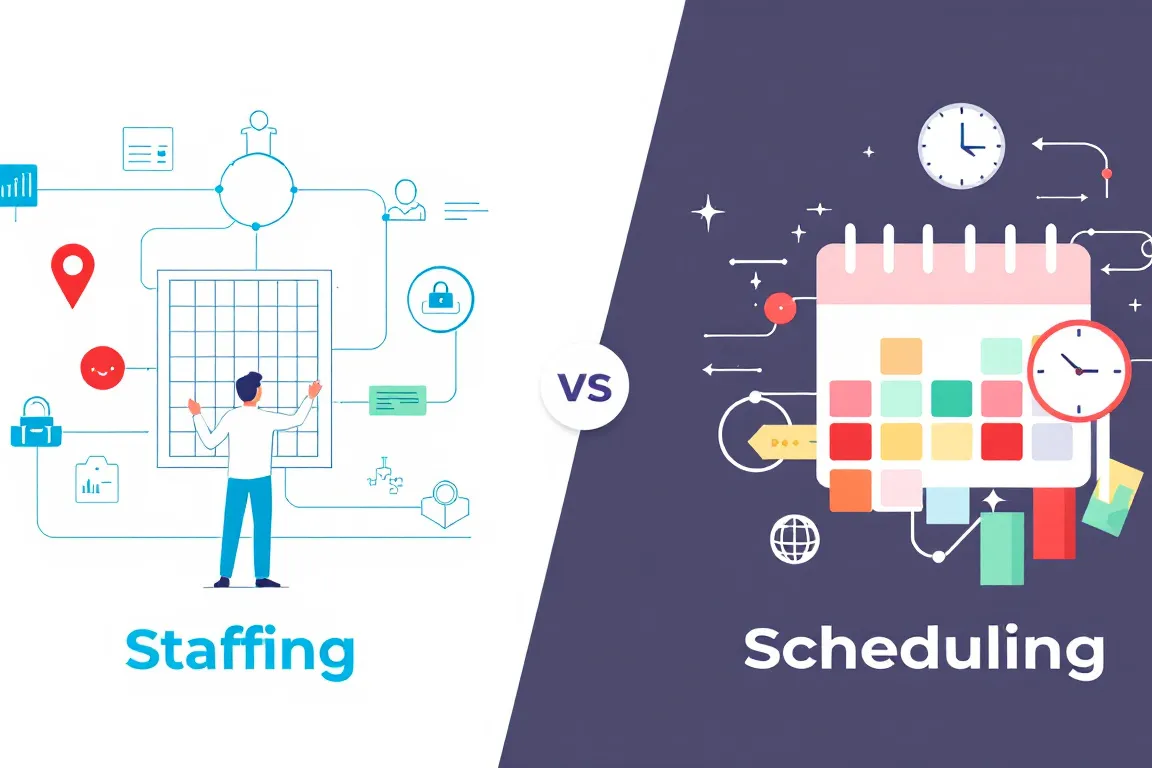When it comes to staff absences, many, if not most, instances aren’t under your control. For a start, employees are entitled to annual leave and you can’t help if staff fall prey to a bug going around, let alone a longer-term illness or accident. Workplace absence is a significant issue for business operations, affecting productivity and overall performance.
However, there are also times where an employee is capable of coming to work but just doesn’t want to, resulting in a sick day. On such occasions, it’s not the employee’s health that could with a check-up – it’s the company culture. High absenteeism can negatively impact team morale and productivity, making it essential to address underlying issues.
Introduction to Absence Management
Absence management is a critical aspect of running a successful business. High rates of sickness absence and employee absenteeism can disrupt daily operations, increase financial costs, and lower overall morale within the workplace. When absence rates climb, the impact is felt across teams, with workloads redistributed and productivity often taking a hit. By implementing a robust absence management strategy, organizations can proactively address these challenges, supporting employee wellbeing and reducing the risk of long term sickness absence. Understanding the underlying causes of absence and taking steps to support employees not only helps to control direct costs but also creates a more resilient and productive workforce. Investing in effective absence management is an investment in your employees—and in the long-term success of your business.
Understanding the Causes of Absenteeism
To effectively reduce sickness absence, it’s essential to understand what drives employees to take time off. Absenteeism often stems from a combination of mental and physical health issues, work related stress, and a lack of good work life balance. Mental health problems such as anxiety, depression, and stress are increasingly common reasons for absence, and can be exacerbated by unrealistic workloads or a lack of support. Line managers play a crucial role in identifying these underlying causes and ensuring employees receive the right support, whether that’s through access to an employee assistance programme, flexible working options, or simply a listening ear. By addressing the root causes of repeated absences and fostering a positive work environment, employers can help employees manage their health issues and reduce the likelihood of future absences.
What is company culture?
A company’s culture can be defined as how a company is: its personality. It encompasses how an organisation treats its employees and how they, consequently, feel about the company and conduct themselves at work. A supportive culture is essential for reducing absence and fostering employee engagement.
It is also important to consider the Equality Act and the need for reasonable adjustments to support staff with disabilities.
Management plays a key role in shaping culture, and effective sickness absence policies and statutory sick pay are crucial in supporting employees during periods of ill health.
Employee wellbeing should be prioritised, with occupational health services supporting staff and managing absences.
A positive work environment is underpinned by robust health and safety measures to maintain employee wellbeing.
Line managers and line management are central to supporting staff, managing absence, and ensuring regular wellbeing conversations.
Engaging staff involved in developing absence management strategies helps create a more inclusive and effective approach.
Providing support through open communication and workplace adjustments is vital for employee recovery and sustained employment.
Flexible working arrangements help employees with caring responsibilities balance work and personal responsibilities, reducing absence and improving job satisfaction.
Rewards and recognition practices help employees feel valued and create happy employees who are more engaged and productive.
A positive culture can increase productivity and support talent attraction by making the organisation more appealing to skilled staff.
The HR team plays a key role in supporting absence management and employee wellbeing through data analysis and tailored strategies.
Managing an employee’s workload is important to prevent stress and reduce the risk of absence.
The Role of Line Managers
Line managers are at the frontline of managing sickness absence and supporting employees facing mental health issues. Their ability to have open, honest conversations with staff is key to uncovering the underlying causes of absence and providing the right support to help employees return to work. Line managers should be well-versed in the company’s absence policy, including how to report sickness absence, manage sick pay, and conduct effective return to work interviews. With the right training and resources, line managers can play a key role in supporting employees through health issues, ensuring that absence is managed fairly and consistently, and helping staff feel valued and understood. This proactive approach not only helps employees return to work more smoothly but also strengthens the overall health and wellbeing of the team.
The Benefits of a Healthy Company Culture
A healthy company culture is one of the most effective ways to reduce sickness absence and promote employee wellbeing. When employees feel supported—through access to mental health resources, employee assistance programmes, and a genuine commitment to good work life balance—they are less likely to experience work related stress and more likely to remain engaged and productive. Investing in employee wellbeing leads to a more engaged workforce, lower financial costs associated with absence, and a positive work environment where everyone can thrive. By prioritizing mental health challenges and fostering employee engagement, employers can enjoy the benefits of reduced absenteeism and increased overall productivity, creating a happier, healthier workplace for all.
Absence Policy and Procedures
Having a clear and comprehensive absence policy is essential for managing sickness absence and minimizing the risk of unauthorised absence. An effective absence policy should outline the procedures for reporting sickness absence, managing sick pay, and conducting return to work interviews. It should also detail how the organization supports employees facing mental health challenges, including access to employee assistance programmes and making reasonable adjustments to help staff return to work. By ensuring that absence policies are well-communicated and consistently applied, employers can provide the right support to employees while protecting the organization from the risks associated with sickness absence. A strong absence policy not only helps manage sickness related absences but also demonstrates a commitment to employee health and wellbeing.
The benefits of a healthy company culture for employee wellbeing
- A Positive Working Environment A company’s culture hugely influences its social order, so when it’s positive, there are better relationships among employees, improved communication between different teams and departments, and a positive attitude towards management.
- Job Satisfaction When staff morale is high, employees feel more valued and stimulated, so they’re happier in their work. Being happier, they’re also more productive.
- Higher Staff Retention If employees are happy with the company and get along with their colleagues, they’ll be more loyal and less likely to leave. Even when presented with a good opportunity, they’ll second-guess whether they’ll get along as well elsewhere. With an increased rate of retention, it’s easier to grow and plan for the future.
- Fewer Sick Days As alluded to in the introduction, employees are more likely to persevere and come into work when there’s a great company culture. They’ll feel that they’re a part of a greater whole and will empathise with their colleagues having to pick up their slack in their absence. In some cases, employees won’t want to call in sick because they actually love their work. Plus, a good culture will result in less workplace stress, resulting in fewer sick days from mental burnout. A positive culture also helps reduce both short term absence and short term sickness by supporting employees through brief illnesses and encouraging early intervention.
Supporting employees returning from long term absence and long term absences is also crucial, and providing appropriate adjustments can help them reintegrate successfully.
A phased return can play a key role in helping employees reintegrate after an extended absence, allowing them to gradually rebuild their stamina and confidence.
When workplace stress is present, it’s important to identify and support employees with a mental health problem to prevent future absences and promote overall wellbeing.
How to improve your company culture to reduce absenteeism
- Goals Define, or redefine, your organisational goals and objectives so employees know what they’re striving for and seeking to achieve. Ideally, employees should have input into these goals, as they’ll have a greater sense of ownership over them.
- Listen Listen to employees’ suggestions and concerns and do your best to address them. This makes staff feel heard, which in makes them feel valued and boosts morale. Better still, frequently asking for staff feedback further shows that you value their opinion and benefits company culture.
- Transparency When staff are kept in the dark, they don’t feel like their employers trust, or respect, them much – which doesn’t lend itself to a great company culture. Conversely, being as open as you can about the company’s successes, failures, plans, and direction engenders trust and a greater sense of unity.
- Flexibility Allow for as much flexibility in working arrangements as you can, which could include remote working and flexitime. Being adaptable to employee’s needs and personal situations shows that you both trust and value them.
- Rewards Rewards show employees that the company’s good fortune is intertwined with their own. That the better the business does, the better they do. Or put another way, that their efforts and contributions matter, are noticed and appreciated, and will be rewarded.
Now, while this usually involves bonuses, there are other, non-monetary ways to reward your employees more frequently. This includes gifts and vouchers, prizes, and exciting workplace and team-building events.




